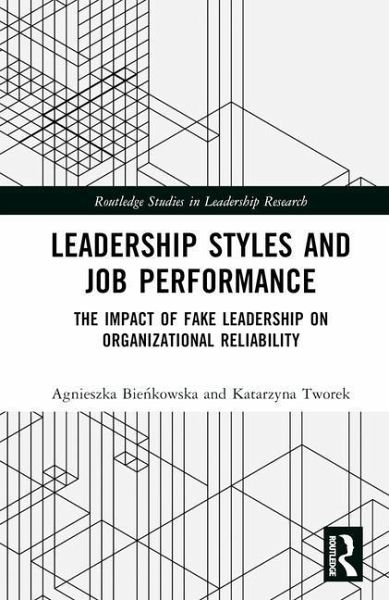
Leadership Styles and Job Performance
The Impact of Fake Leadership on Organizational Reliability
Versandkostenfrei!
Versandfertig in 6-10 Tagen
154,99 €
inkl. MwSt.
Weitere Ausgaben:

PAYBACK Punkte
77 °P sammeln!
Various styles of leadership have the potential for positive and negative influence on employees and organization. The monograph offers a new approach and proposes the systematic analysis of negative leadership traits and behaviors through the broadening of existing approaches (based on employees' orientation and organizational orientation) by analyzing them together with a third dimension: leader's traits, which will allow us to analyze the intent of the leader. Based on this approach, the monograph introduces the term: fake leadership, characterized by an emphasis on individual goals of the ...
Various styles of leadership have the potential for positive and negative influence on employees and organization. The monograph offers a new approach and proposes the systematic analysis of negative leadership traits and behaviors through the broadening of existing approaches (based on employees' orientation and organizational orientation) by analyzing them together with a third dimension: leader's traits, which will allow us to analyze the intent of the leader. Based on this approach, the monograph introduces the term: fake leadership, characterized by an emphasis on individual goals of the leader (regardless of their importance for the organization) coupled with intentional anti-employees and anti-organizational behaviours. Such leaders operate with intent to engage in negative behaviors towards employees and organization, simultaneously aiming at hiding such intent. The monograph introduces and empirically verifies various models explaining the mechanisms, through which fake leadership negatively influences job performance of employees and organizational reliability based on intraorganizational trust and positive job-related attitudes (work motivation, job satisfaction, work engagement, organizational commitment), as well as negative job-related attitudes (work disengagement, job dissatisfaction, work demotivation), tend to hide errors, which is coupled with the number of management and employees' errors. These models reference the concept of authentic leadership, which is chosen as a positive alternative to the described fake leadership.














